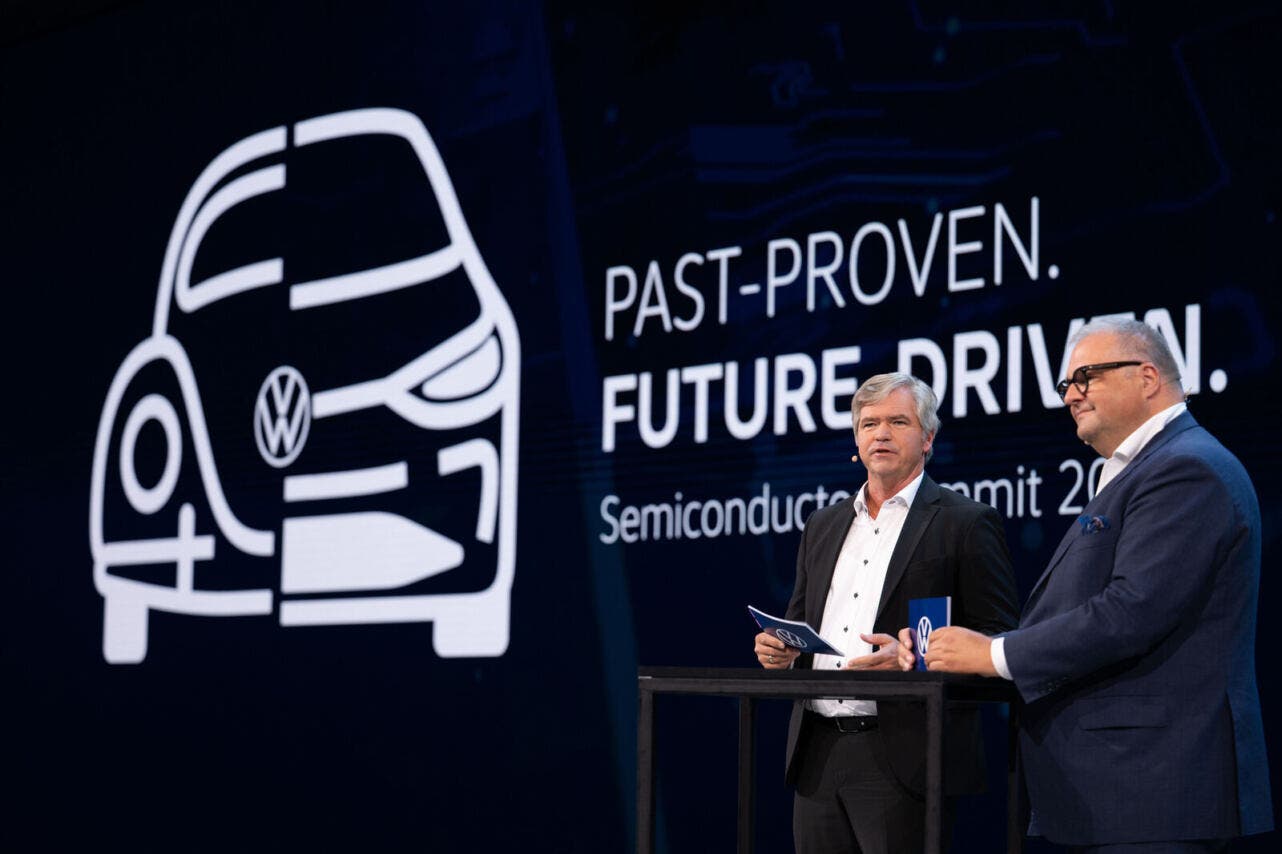Volkswagen has set an ambitious course toward massive integration of artificial intelligence (AI), announcing an investment of up to €1 billion by 2030 to speed up vehicle development and boost industrial competitiveness.
The announcement, made during the IAA Mobility fair on September 9, highlights one of the cornerstones of the German automaker’s long-term digital strategy, viewing AI as a key driver for the transformation of the automotive industry. The company already operates over 1,200 AI applications, with hundreds more currently in development.

By 2035, Volkswagen aims to achieve efficiency gains and cost savings of around €4 billion through the scalable adoption of AI across the entire value chain. A notable example is its partnership with Dassault Systèmes, which has created an AI-driven design environment to support simulations and virtual testing. According to Volkswagen, this innovative approach could cut average vehicle development times to just 36 months, making the process about 25% faster than today.
Volkswagen has also enhanced its digital production platform, now connecting more than 40 facilities worldwide and integrating AI tools to optimize assembly processes, reduce energy consumption, cut costs, and lower emissions. At the same time, AI is being leveraged to strengthen cybersecurity and improve knowledge sharing across business units.

Workforce training is another critical pillar. Through its WE & AI initiative, launched in 2024, more than 130,000 employees have already undergone training, making it one of the largest education and upskilling programs ever implemented by Volkswagen. The initiative ensures that workers are well-prepared to maximize the benefits of AI technologies.
Volkswagen is exploring broader industry collaborations, working toward an industrial AI model built on real data from design, production, and logistics, inspired by the Catena-X data-sharing platform. This effort seeks to streamline workflows and enhance supply chains across multiple sectors. The automaker also stresses the importance of supportive regulatory and funding frameworks in Europe to drive AI adoption.
